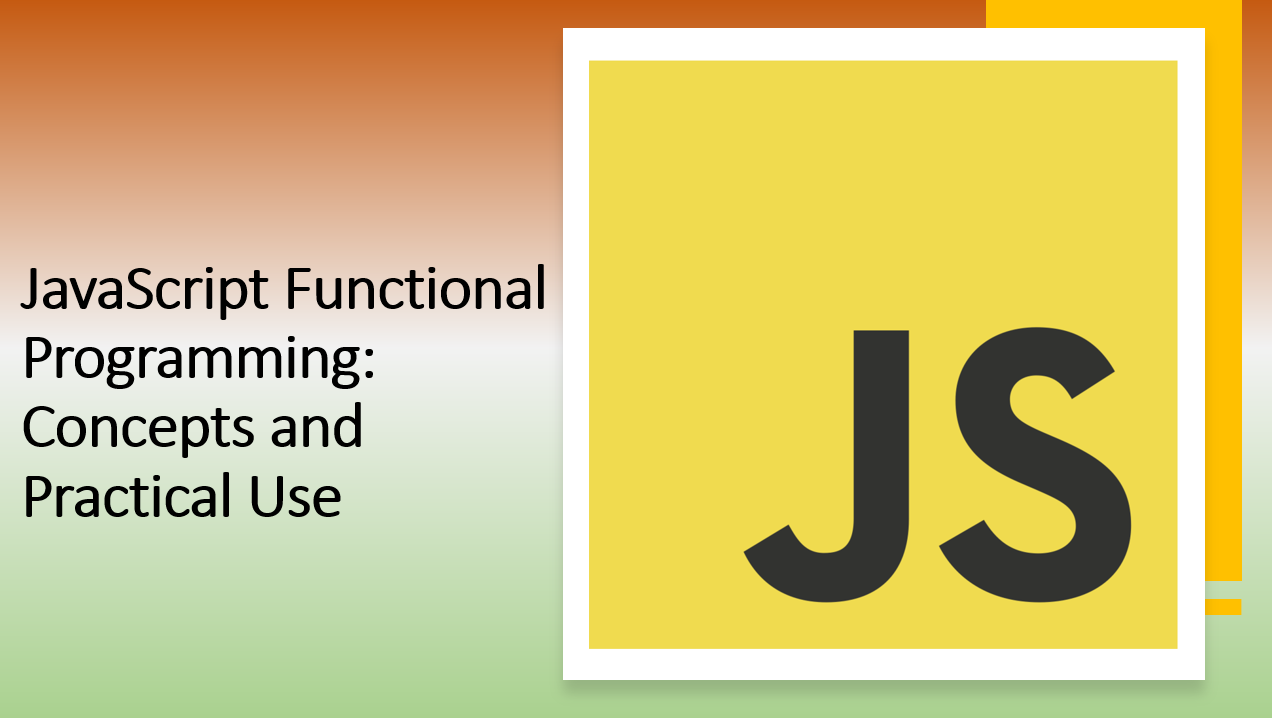
Introduction
Functional programming is a paradigm that focuses on treating computation as the evaluation of mathematical functions. In the context of JavaScript, embracing functional programming principles can lead to more maintainable, predictable, and modular code.
In this guide, we'll explore the core concepts of functional programming and demonstrate how to apply them practically in your JavaScript projects.
Suggested Tutorials 📑:
What is Functional Programming?
Functional programming is a programming paradigm that treats computation as the evaluation of mathematical functions and avoids changing-state and mutable data.
Functional programming is a declarative programming paradigm, meaning that the program logic is expressed without explicitly describing the flow control.
1. Pure Functions
A pure function is a function that has the following properties:
- Its return value is the same for the same arguments (no variation with local static variables, non-local variables, mutable reference arguments or input streams).
- Its evaluation has no side effects (no mutation of local static variables, non-local variables, mutable reference arguments or input/output streams).
Pure functions are the cornerstone of functional programming. They are the building blocks of functional programming.
The following code snippet demonstrates a pure function:
// Impure Function (Modifies external state)
let total = 0;
function addToTotal(number) {
total += number;
}
// Pure Function
function add(a, b) {
return a + b;
}
2. Immutability
Immutability is a core concept of functional programming. It means that once a value is assigned to a variable, it cannot be changed.
In JavaScript, primitive values are immutable. For example, the following code snippet demonstrates that the value of the variable a cannot be changed:
const originalArray = [1, 2, 3];
// Creating a new array with an added element (immutability)
const newArray = [...originalArray, 4];
3. Higher-Order Functions
Higher-order functions are functions that take other functions as arguments or return functions as their results.
The following code snippet demonstrates a higher-order function:
// Higher-Order Function
function higherOrderFunction(callback) {
callback();
}
// Callback Function
function callback() {
console.log('Hello, World!');
}
higherOrderFunction(callback); // Prints 'Hello, World!'
4. Function Composition
Function composition is the process of combining two or more functions to produce a new function or perform some computation.
The following code snippet demonstrates function composition:
// Function Composition
const add = (a, b) => a + b;
const multiply = (a, b) => a * b;
const addAndMultiply = (a, b, c) => multiply(add(a, b), c);
addAndMultiply(1, 2, 3); // 9
Suggested Tutorials 📑:
5. Recursion
Recursion is a technique for iterating over an operation by having a function call itself repeatedly until it arrives at a result. Most loops can be rewritten in a recursive style, and in some functional languages this approach to looping is the default.
The following code snippet demonstrates recursion:
// Recursion
function factorial(n) {
if (n === 0) {
return 1;
}
return n * factorial(n - 1);
}
factorial(5); // 120
6. Referential Transparency
Referential transparency is a property of pure functions. It states that a function call can be replaced by its resulting value without changing the behavior of the program.
The following code snippet demonstrates referential transparency:
// Referential Transparency
function add(a, b) {
return a + b;
}
const x = add(1, 2);
const y = 3;
x === y; // true
7. Currying
Currying is the process of taking a function with multiple arguments and returning a series of functions that take one argument and eventually resolve to a value.
The following code snippet demonstrates currying:
// Currying
function add(a) {
return function (b) {
return a + b;
};
}
add(1)(2); // 3
8. Partial Application
Partial application is the process of taking a function with multiple arguments and returning a function with fewer arguments.
The following code snippet demonstrates partial application:
// Partial Application
function add(a, b) {
return a + b;
}
const addOne = add.bind(null, 1);
addOne(2); // 3
Suggested Tutorials 📑:
9. Function Pipelines
Function pipelines are a technique for organizing complex computations by breaking them into multiple functions that can be chained together.
The following code snippet demonstrates function pipelines:
// Function Pipelines
const add = (a, b) => a + b;
const multiply = (a, b) => a * b;
const addAndMultiply = (a, b, c) => multiply(add(a, b), c);
addAndMultiply(1, 2, 3); // 9
10. Function Chaining
Function chaining is a technique for calling multiple functions on the same object in sequence.
The following code snippet demonstrates function chaining:
// Function Chaining
const array = [1, 2, 3];
array
.map((x) => x * 2)
.filter((x) => x > 2)
.reduce((sum, x) => sum + x); // 8
11. Lazy Evaluation
Lazy evaluation is a technique for delaying the evaluation of an expression until its value is needed.
The following code snippet demonstrates lazy evaluation:
// Lazy Evaluation
function lazyFilter(array, predicate) {
return function* () {
for (const x of array) {
if (predicate(x)) {
yield x;
}
}
};
}
const array = [1, 2, 3];
const filteredArray = lazyFilter(array, (x) => x > 2);
for (const x of filteredArray()) {
console.log(x);
}
Another common scenario for lazy evaluation is with Promises, where you can chain asynchronous operations without actually executing them until explicitly requested:
function fetchData() {
return new Promise(resolve => {
setTimeout(() => {
console.log("Fetching data...");
resolve("Data has been fetched");
}, 1000);
});
}
const dataPromise = fetchData();
// Only when you call .then() will the Promise execute
dataPromise.then(data => {
console.log(data);
});
Suggested Tutorials 📑:
Conclusion
In this guide, we explored the core concepts of functional programming and demonstrated how to apply them practically in your JavaScript projects.
Functional programming is a paradigm that focuses on treating computation as the evaluation of mathematical functions. In the context of JavaScript, embracing functional programming principles can lead to more maintainable, predictable, and modular code.
We hope you found this guide useful.
Happy coding! 🎉
